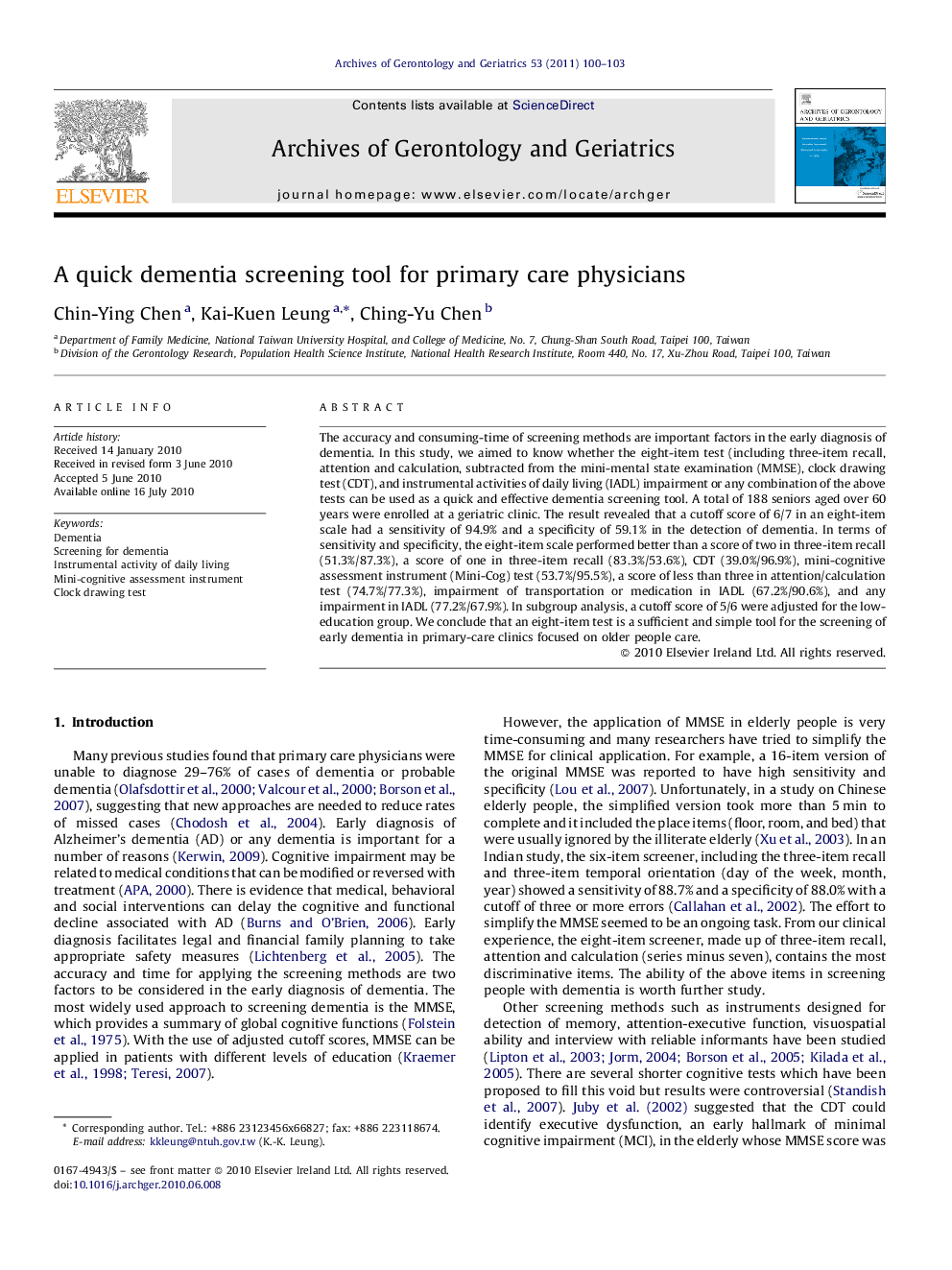| Article ID | Journal | Published Year | Pages | File Type |
|---|---|---|---|---|
| 1903053 | Archives of Gerontology and Geriatrics | 2011 | 4 Pages |
The accuracy and consuming-time of screening methods are important factors in the early diagnosis of dementia. In this study, we aimed to know whether the eight-item test (including three-item recall, attention and calculation, subtracted from the mini-mental state examination (MMSE), clock drawing test (CDT), and instrumental activities of daily living (IADL) impairment or any combination of the above tests can be used as a quick and effective dementia screening tool. A total of 188 seniors aged over 60 years were enrolled at a geriatric clinic. The result revealed that a cutoff score of 6/7 in an eight-item scale had a sensitivity of 94.9% and a specificity of 59.1% in the detection of dementia. In terms of sensitivity and specificity, the eight-item scale performed better than a score of two in three-item recall (51.3%/87.3%), a score of one in three-item recall (83.3%/53.6%), CDT (39.0%/96.9%), mini-cognitive assessment instrument (Mini-Cog) test (53.7%/95.5%), a score of less than three in attention/calculation test (74.7%/77.3%), impairment of transportation or medication in IADL (67.2%/90.6%), and any impairment in IADL (77.2%/67.9%). In subgroup analysis, a cutoff score of 5/6 were adjusted for the low-education group. We conclude that an eight-item test is a sufficient and simple tool for the screening of early dementia in primary-care clinics focused on older people care.
